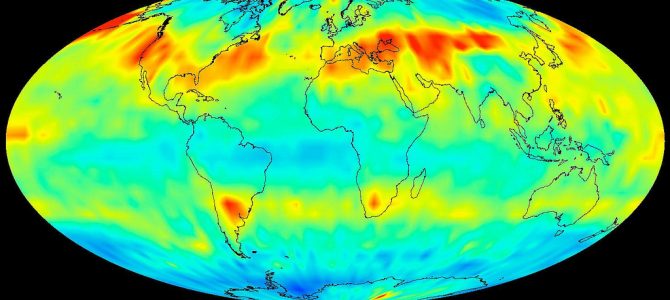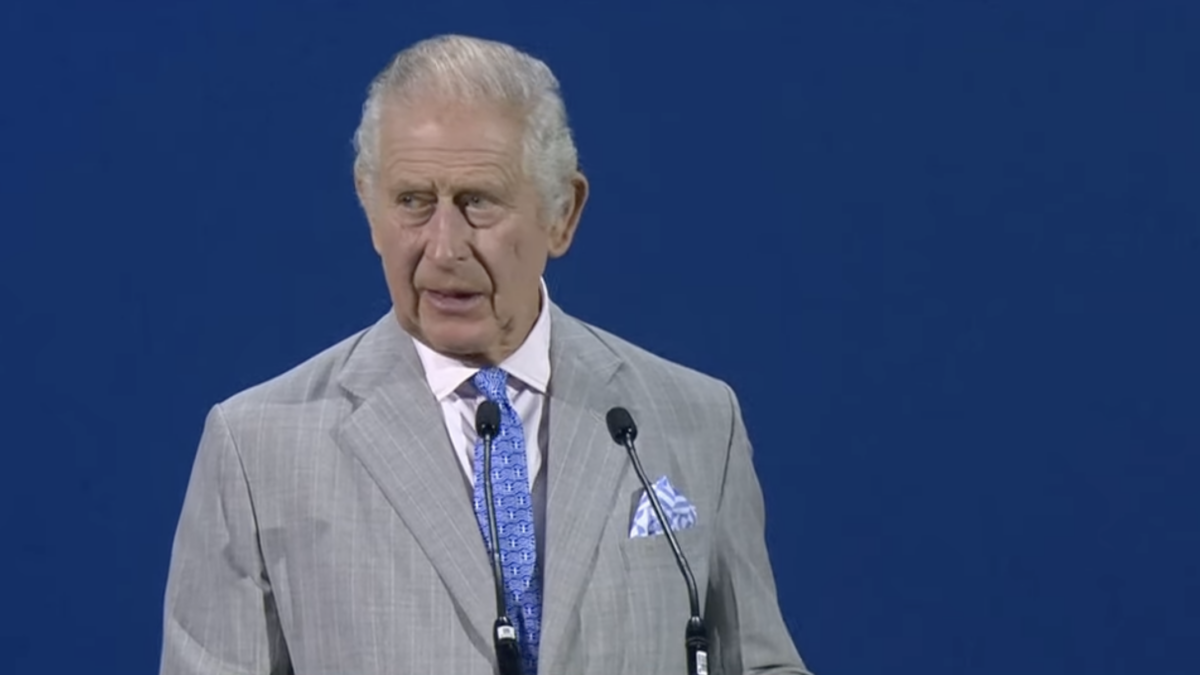
For pro-free-marketers, the big bright spot of the Trump administration is the hatchet he’s taking to the Environmental Protection Agency: doing things like packing the agency with global warming skeptics and rolling back absurd new automobile mileage mandates.
The man in charge of this is new EPA Administrator Scott Pruitt, who up to now has been cautious about saying anything that would express his skepticism that human emissions of carbon dioxide are causing global warming.
Except now he’s done it. In a CNBC interview, the host asked, “Do you believe that it’s been proven that CO2 is the primary control knob for climate?” Pruitt answered: “No, I think that measuring with precision human activity on the climate is something very challenging to do, and there’s tremendous disagreement about the degree of impact. So no, I would not agree that it’s a primary contributor to the global warming that we see. But we don’t know that yet. We need to continue the debate and continue the review and the analysis.”
This was met with howls of outrage and derision at such an assault on established science. But it might not surprise you to hear—because this is becoming something of a theme these days—that Pruitt is absolutely right, and it’s the media commentators who don’t understand the scientific issues.
Separate Data from Interpretation, Please
NPR, for example, accused Pruitt of questioning “basic facts about climate change.” But the problem with global warming alarmists getting on their science high horse is that they don’t really know the science all that well, or how to talk about it.
For example, NPR goes on to say: “The view that CO2 is a major heat-trapping gas is supported by reams of data, including data collected by government agencies such as NASA and the National Oceanic and Atmospheric Administration.” Er, which data would that be? Carbon dioxide is certainly known to be a greenhouse gas, but nobody needed NASA or NOAA to tell them that. (More on this in a moment.) Presumably NPR thinks there is data which shows that carbon dioxide is primarily responsible for recent increases in global temperatures. But “data” can’t show that. Any assertion of cause and effect in a complex system like the climate, where there are hundreds of competing variables, is someone’s interpretation of the data.
So when people say they know carbon dioxide is driving global warming because of “data,” they reveal that they don’t know what they’re talking about. The same thing is true if they say they know it because of “basic science.”
That’s the tack the New York Times takes, informing us that the “basic science showing that carbon dioxide traps heat at the Earth’s surface dates to the 19th century, and has been confirmed in many thousands of experiments and observations since.”
Snopes.com, confirming its transformation from debunker of urban myths to just another political hack “fact checker,” cites some speculative comments made in 1930 by Swedish scientist Svante Arrhenius to conclude, “In essence, the relationship between carbon dioxide and climate had already been firmly established by the early 20th century.” No, that just means the relationship was hypothesized in 1930. Arrhenius made no attempt to prove the connection, and at that time would have had no means to do so.
The Question Is about Carbon Dioxide’s Importance
But all of these people ought to know that this is not what Pruitt was asked, nor is it the central issue of the global warming controversy. The question is not whether carbon dioxide is a greenhouse gas. The question is whether it is the “primary control knob for the climate.” The question is whether it is the greenhouse gas, the one factor that dominates all other factors.
There is good reason for skepticism. For one thing, just on the “basic science,” Pruitt is absolutely correct. Carbon dioxide is a greenhouse gas, but it is not the most powerful greenhouse gas, by a long shot. Water vapor is far more effective at trapping heat and releasing it back to the atmosphere, primarily because it absorbs a lot more radiation in the infrared spectrum, which is released as heat.
That’s why all of the climate theories that project runaway global warming use water vapor to juice up the relatively small impact of carbon dioxide itself. They posit a “feedback loop” in which carbon dioxide increases temperatures, which increases the amount of water vapor in the atmosphere, which increases temperatures even more. These models need a more powerful greenhouse gas to magnify the effect of carbon dioxide.
But does it really work that way? By how much does water vapor magnify the impact of carbon dioxide? And is that effect dampened by other factors? Consider cloud formation: more water in the atmosphere means more clouds, which reflect sunlight back into space and have a cooling effect that counteracts the warming effect. But by how much?
The answer is that nobody really knows. There are varying estimates for “climate sensitivity,” that is, how sensitive global temperatures are to increases in carbon dioxide. They range from a relatively trivial impact—less than one degree Celsius warming from a doubling of atmospheric carbon dioxide—to more than five degrees.

The important part is that these are all estimates. Some are developed based on mathematical models, some from looking at historical records, some from other observations of the atmosphere. But there’s quite a range of disagreement among them, and none has been definitively established. So there really is “tremendous disagreement about the degree of impact.”
Don’t Forget Competing Theories
There are also competing theories about completely unrelated factors that could be more important in driving the climate. Over geological history, carbon dioxide levels have been far higher than today during periods when the earth was colder. This certainly suggests that carbon dioxide is not the “control knob” and we need other factors to explain the climate of the distant past. (The most intriguing alternative theory, from Danish physicist Henrik Svensmark, is that variations in the strength of the sun’s magnetic field affect how many cosmic rays penetrate the atmosphere, which in turn affects cloud-formation, which affects how much of the sun’s heat is reflected back into space.)
But a first-hand understanding of the science is not what most science reporting consists of today. Instead, it consists of conveying to the public the conclusions handed down by some accepted authority. That’s the approach taken by PolitiFact, which countered Pruitt with this: “‘Pruitt is incorrect. CO2 is a primary contributor to global warming. That fact is not in dispute among climate scientists,’ said Anne Slinn, executive director for research of the Center for Global Change Science at the Massachusetts Institute of Technology.” Not in dispute? At all? Has anyone told her that the lowest estimate of climate sensitivity comes from MIT’s own Richard Lindzen?
But pretending that dissenting scientists don’t exist is standard operating procedure for global warming promoters and their lackeys in the media. The New York Times has a policy of never talking to them. At least PolitiFact talked to Roger Pielke Sr, and way down at the bottom of the article admitted this: “In Pielke’s view, a more accurate version of Pruitt’s statement would be: ‘I would not agree that CO2 is the only contributor to changes and long term variations in climate.'” PolitiFact rated Pruitt’s statement as “false.” But an objective conclusion would be that Pruitt’s statement is roughly consistent with a dissenting position held by a number of distinguished climate scientists.
Ah, but that can’t be allowed, because everybody has to be in total agreement about the horrible danger posed by man-made global warming—and about the Left’s preferred political solutions. As former Obama administration EPA head Lisa Jackson tells the Washington Post, “The time for debate on climate change has passed.”
I’ll leave you to decide which EPA head’s statement is more unscientific: that a complex scientific claim needs more review and analysis, or that scientific debate should not even be entertained.
Follow Robert on Twitter.









